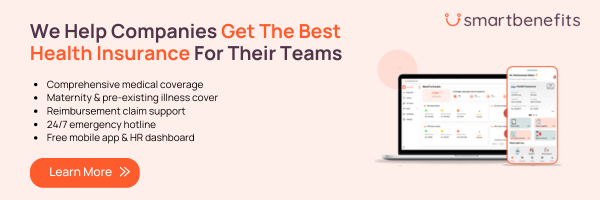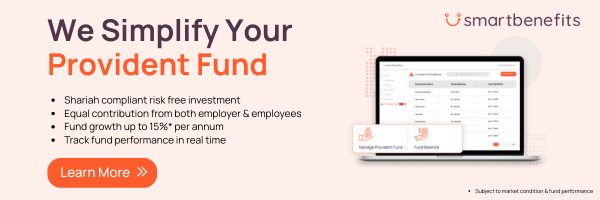In Pakistan, employee benefits are no longer just about offering a provident fund or health insurance. With rising financial awareness and a strong inclination towards Islamic values, employees increasingly expect their long-term savings to be both profitable and halal. Many finance and HR managers report that one of the most common questions employees ask about their provident fund contributions is
“Is our provident fund Shariah-compliant?”
This simple question reflects a much deeper shift. The demand for Shariah-compliant provident fund options is not just growing; it is becoming a necessity for progressive employers in Pakistan.
Why Shariah-Compliant Provident Funds Are Rising in Pakistan
A. Religious and Cultural Preferences
Islamic finance has deep roots in Pakistan. A significant portion of banking deposits has already shifted towards Islamic banking, and Shariah-compliant products are no longer considered “alternative”, they are mainstream. Employees want to know that their hard-earned retirement savings are invested in halal avenues, free of Riba (interest) and speculation.
B. Growth of Islamic Investments Locally
According to State Bank of Pakistan data, Islamic banking assets now account for nearly 20% of the total banking industry. Similarly, the Pakistan Stock Exchange (PSX) offers multiple Shariah-compliant indices such as KMI-30 and PSX-KMI All Shares Index, making it easier for provident funds to allocate placements in halal equities.
This trend shows that not only are the products available, but they are also performing competitively.
C. Regulatory Support
Both the Securities and Exchange Commission of Pakistan (SECP) and the SBP are actively encouraging Islamic finance products, including sukuks, takaful, and Shariah-compliant mutual funds. For HR managers, this regulatory backing means more options to diversify provident fund portfolios while staying aligned with employee values.
D. Industry Innovation
Providers like Salaam Takaful have recently introduced group provident fund takaful solutions that combine investment, protection, and Shariah compliance. This is a big step forward, as employers now have ready-made, compliant structures that simplify administration while catering to employee expectations.
What This Means for Employers and HR in Pakistan
A. Employee Engagement and Retention
In a competitive job market like Karachi, Lahore, and Islamabad, offering provident funds with Shariah-compliant investment options can strengthen employer branding. It signals that the company cares about employee values, not just their productivity.
This aligns well with what we’ve discussed earlier about building strong employer brands through aligning with employee values in our blog, Building a Strong Employer Brand Through Corporate Social Responsibility (CSR)
B. No Trade-Off Between Returns and Faith
One misconception is that Shariah-compliant funds offer lower returns. In reality, many Islamic equity and money market funds in Pakistan have delivered competitive, even superior, returns compared to conventional ones. For instance, Islamic mutual funds have shown resilience during market downturns due to their restriction on high-risk leverage.
C. Simplified Administration for HR
Some providers now offer daily NAV updates, transparent fee structures, and online access for employees. This reduces HR’s administrative burden and ensures employees can track their savings digitally—a feature that appeals strongly to younger, tech-savvy staff.
D. Tax Advantages
Employees investing in Shariah-compliant voluntary pension schemes (VPS) also enjoy the same tax credits as conventional ones. This creates a win-win scenario: compliance with faith plus financial efficiency.
How to Introduce Shariah-Based Options in Provident Funds
From an HR/finance department’s perspective, these are the following steps that Pakistani employers can take to introduce Shariah-compliant options
- Employee Survey – Gauge how many employees would prefer a Shariah option for their provident contributions.
- Engage With Fund Managers – Explore available Shariah-compliant provident or pension products from credible providers like NBP Funds, JS Investments, or Salaam Takaful.
- Check Governance – Ensure funds have a Shariah board or certified scholars overseeing compliance. This builds employee trust.
- Pilot Program – Start with an opt-in scheme where employees can allocate their contributions to Shariah funds.
- Educate Employees – Hold short sessions to explain how these funds work and why they align with both financial and religious goals.
- Scale Up – Gradually make Shariah-compliant funds a standard feature in your provident fund policy.
Challenges in Pakistan—and Solutions
- Awareness Gap: Many employees are not familiar with how Shariah funds operate.
Solution: Provide educational resources and invite fund managers for workshops.
- Administrative Transition: Shifting to new funds requires payroll and system updates.
Solution: Work with providers offering integrated digital solutions.
- Skepticism on Performance: Some employees may assume halal equals low returns.
Solution: Share real performance data from funds like KMI-30 or top Islamic VPS to show competitiveness.
Why Employers Should Act Now
The workforce in Pakistan is young, ambitious, and increasingly faith-conscious. If employers fail to provide Shariah-compliant investment avenues, employees may feel disconnected or even opt out of provident contributions. On the other hand, integrating these options:
- Strengthens employee loyalty and morale
- Enhances employer branding in a values-driven job market
- Provides tax-efficient savings structures
- Keeps organizations aligned with future regulatory trends
At Smartbenefits, we’ve consistently highlighted how strategic benefit design can impact both retention and productivity. For instance, our blog on Designing Employee Benefits in Pakistan explains how provident funds, group life, and EOBI can be balanced for maximum impact.
Adding Shariah-compliant investment choices is the natural next step in that evolution.
Final Thoughts
Many HR and finance professionals will agree that Shariah-compliant provident fund options are no longer just an “add-on.” They represent a strategic necessity in Pakistan’s modern workplace, offering a blend of financial security with cultural and religious alignment.
For employees, it means saving confidently for the future without compromising faith. For employers, it’s an opportunity to stand out in the talent market, foster loyalty, and future-proof benefit structures.
The question is no longer whether employees want Shariah-compliant options—it’s whether employers are ready to provide them.

Sadia Zaheer holds a Masters in Business Administration from IBA, Karachi. After working in several financial institutions in Client Management, Corporate Lending, Islamic Banking and Product Management she jumped careers to pursue a career in writing.
She is a Finance, Business and HR Development writer with four years of experience. She reads a lot and takes care of her multiple cats to remain calm.





